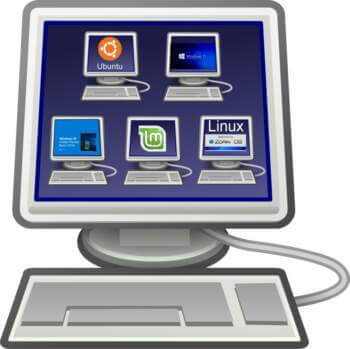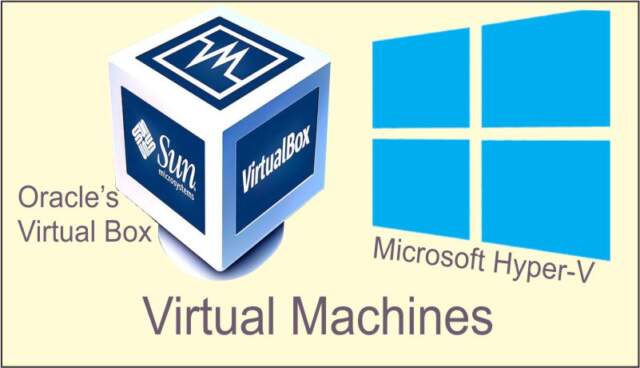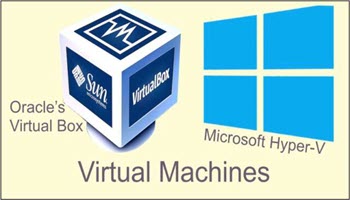What Is A Virtual Drive?
A Virtual Drive (VD), sometimes called a Virtual Machine (VM), serves the same purpose as a hard drive on your computer. It is used for storing everything from files to complete operating systems.
VDs behave like your physical drive but are created by using a virtualization manager like Oracle’s VM VirtualBox or by Windows’ Hyper-V Manager.
Both managers can create a VD on your “Host” system where you can install and run a “virtual” system. The virtual system can be another version of Windows, Linux, Apple, Android, and many others using VirtualBox.
Reasons For Using A VM
- If you have favorite software that is incompatible or has become outdated with the release of a newer version of Windows, you can install it on an older version in a VD
- Use it like a Sandbox. If you like to experiment with downloading questionable software or visiting potentially dangerous websites that could hurt your existing OS, the VD cannot infect the host system
- Try different OSs. If you want to try completely different operating systems or run the version of Windows you feel comfortable with, you can do so in a VD
- If you like using volatile beta systems like Windows Insider, you don’t have to worry about it hurting your regular system
Some Drawbacks
Unfortunately, it is not all rainbows and roses. There are some drawbacks that can prevent you from running a host exactly like your primary system.
- The PC HD space. The physical space for a VM is not large but every virtual system installed will take up additional space. You will need space for configuration files, logs, and a Swap File for each virtual system
- VMs allocate VM memory and if you are already using the bare minimum to operate your system a VM might not work correctly
- Software keys and activation. Generally, if the OS you are installing requires an activation key, it will be required in the virtual system. This generally applies to Windows. Most Linux systems do not require activation
- One exception is the Windows Insider Preview. It can be loaded in Hyper V Manager with a built-in activation for 90 days
VirtualBox vs Hyper-V Manager
Virtual Box has a long and successful history. It is the only VM that will work with the “Home” version of Windows. It is a third-party software solution and operates on what is called a Type 2 Hypervisor.
Hyper-V Manager is a Type 1 Hypervisor that runs directly on the host machine’s hardware. This makes it faster because it does not need to load additional software, but you will require a Pro, Enterprise, or Education version.
Summary
This is the 1st of a 5-part series.
- Understanding a Virtual Drive ⬅ You are here
- Installing Oracle’s VirtualBox
- Installing Hyper-V Manager
- Installing a Linux Distro
- Using Quick Create In Hyper-V Manager
—

Hi Jim
I have VirtualBox running on W11P, it is running Gentoo Linux in a VM, runs really well, the only way to run Linux, for myself. The only thing with installing VirtualBox, I had too also install python, no big deal, but it seems as if Windows is missing some dependencies that VirtualBox is in need of. I have never used the W11 Hyper-v for a VM, but I intend to. I do believe this will be a very interesting topic!!!
Daniel, I have removed VirtualBox from my PC for the first time in many years. I have three versions of Windows and 3 Linux. Mint, Ubuntu and Xorin. All are running flawlessly. I was really happy to see the ability to add it to a Windows Home version with a small batch file. I think you will appreciate the speed difference. VirtualBox has been a great program, still is but i will stick with Hyper-V
Jim
“VirtualBox has been a great program, still is but i will stick with Hyper-V”
I will await some schooling before I attempt using Hyper-v!!!